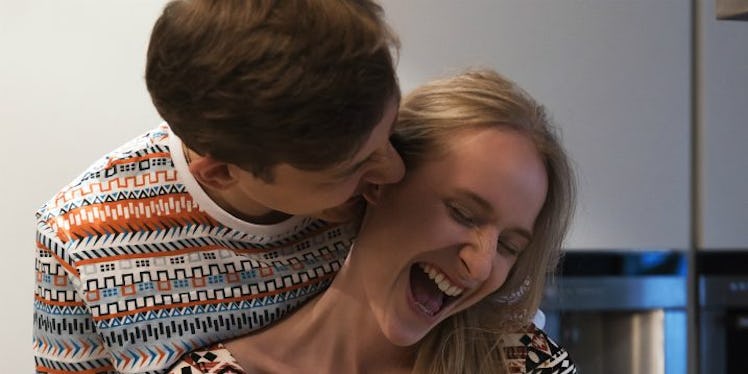
Eating This Low Calorie Protein Will Help You Lose Weight... And Friends
Looking to shed a few pounds by switching to a lean protein? Boy, do I have the choice of meat for you.
I'll give you a few hints: It can be found in your house or apartment. It can be found at eye-level. Um... You are what you eat?
Give up? OK, spoilers ahead: I'm talking about...
HUMANS!!!
Go on, I'll wait until you finish vomiting.
While scientists already know our ancient human ancestors cannibalized each other, researchers have also come to the conclusion they did so mostly for "nutritional" and survival needs.
So, naturally, scientists wanted to know exactly how nutritious hominin bodies were.
The University of Brighton came to the conclusion humans are actually pretty low-calorie.
While a mammoth could feed a group of 25 adult Neanderthals for a month, a 32,376-calorie, 150-pound person could only last a third of a day's meal for everybody.
Yeah, humans are pretty much the chips and guacamole of the mammal menu.
University of Brighton archaeologist James Cole said,
When you stack up muscle values in terms of weigh, we actually fall right where we should — right between saiga and roe deer, which are animals roughly about our same size.
Want to be kind of grossed out by how exact science can be?
Look at these Hannibal-like stats.
A human head and torso? We're talking 5,418.67 calories.
Upper arms? 7,4571.16 calories.
Thighs? 13,354.88 calories.
Skin? 10,278 calories.
What? Skin is over 10,000 calories? The more you know, I guess.
Teeth is only 36 calories, though. OK, OK, that makes sense. Teeth are the Chiclets of the human body.
Also worth noting is humans were pretty difficult to kill, and Cole suggests ritualistic reasons were behind cannibalism, too.
Heh, it looks like we were the most dangerous game after all.
Now, if you'll excuse me, I need not to think about cannibalism for a while. Or ever.
Citations: Another problem with cannibalism: Humans actually aren't very filling (Washington Post)